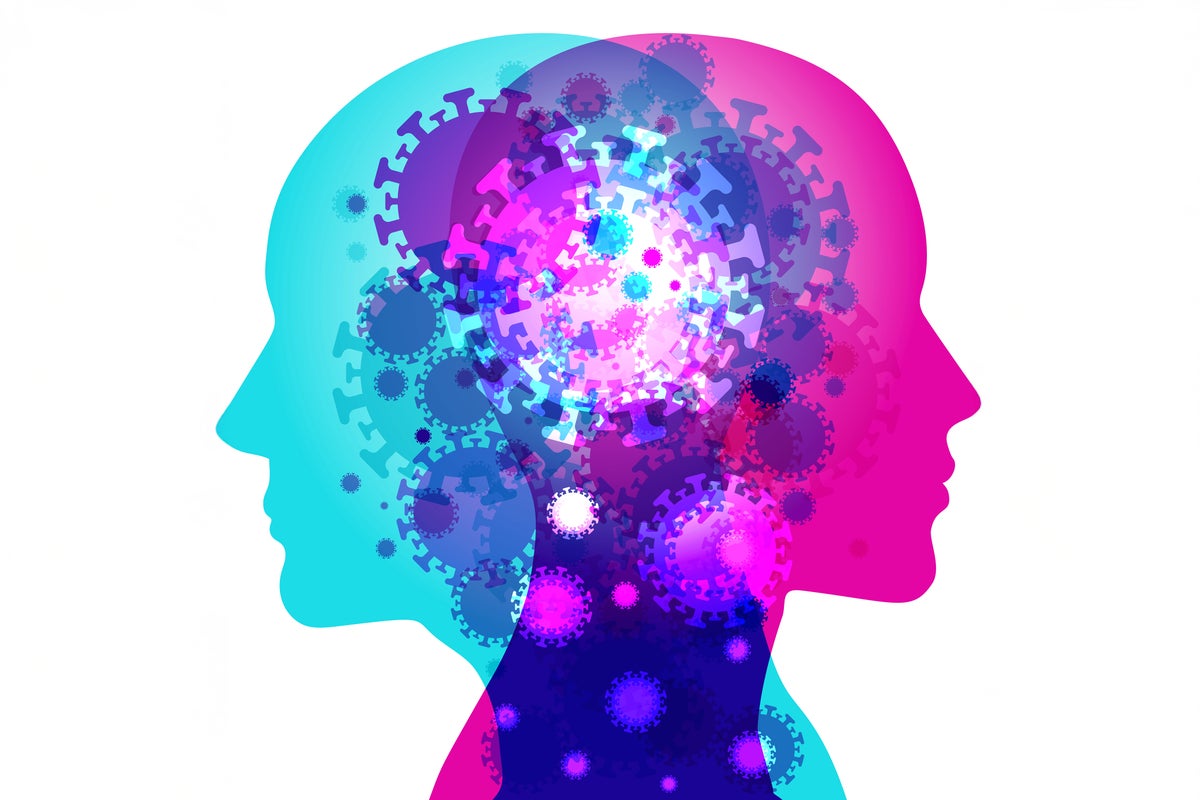The Pandemic Aged Everyone’s Brain—Even in Healthy People
A study of nearly 1,000 people showed that brain aging was not linked to infection status
The brains of healthy people aged faster during the COVID-19 pandemic than did the brains of people analysed before the pandemic began, a study of almost 1,000 people suggests. The accelerated ageing occurred even in people who didn’t become infected.
The accelerated ageing, recorded as structural changes seen in brain scans, was most noticeable in older people, male participants and those from disadvantaged backgrounds. But cognitive tests revealed that mental agility declined only in participants who picked up a case of COVID-19, suggesting that faster brain ageing doesn’t necessarily translate into impaired thinking and memory.
If you’re enjoying this article, consider supporting our award-winning journalism by subscribing. By purchasing a subscription you are helping to ensure the future of impactful stories about the discoveries and ideas shaping our world today.
The findings were published today in Nature Communications.
Previous research has offered clues that SARS-CoV-2 infections can worsen neurodegeneration and cognitive decline in older people. But few studies have explored whether the pandemic period — a tumultuous time marked by social isolation, lifestyle disruptions and stress for many — also affected brain ageing, says study co-author Ali-Reza Mohammadi-Nejad, a neuroimaging researcher at the University of Nottingham, UK.
The team then applied the brain-age models to a separate group of 996 healthy UKBB participants who had all had two brain scans at least a couple of years apart. Some of the participants had had one scan before the pandemic and another after the pandemic’s onset. Those who’d had both scans before the pandemic were designated the control group. The models estimated each participant’s brain age at the time of both scans.
The models predicted that the brains of people who had lived through the pandemic had aged 5.5 months faster on average than had those of people in the control group, irrespective of whether those scanned during the pandemic had ever contracted COVID-19. “Brain health is shaped not only by illness, but by our everyday environment,” says Mohammadi-Nejad.
Next, Mohammadi-Nejad and his colleagues assessed participants who had completed cognitive tests both times they were scanned. They found that only those who had a SARS-CoV-2 infection in the interval between the scans showed signs of cognitive decline, such as reduced mental flexibility and processing speed. This suggests that physical brain ageing might not have been severe enough to affect mental acuity during the pandemic. “Some changes do not trigger symptoms, and some others take many years for any symptom to be manifested,” says Mohammadi-Nejad.
Although the findings are “compelling” evidence that brain ageing accelerated during the pandemic, more work needs to be done to investigate a causal link, says Agustín Ibáñez, a neuroscientist at the Adolfo Ibáñez University in Santiago. He adds that future studies should include data on factors such as mental health, isolation and lifestyle to clarify the mechanisms underlying the brain-ageing effect and how it plays out in people from different backgrounds.
The next steps for Mohammadi-Nejad and his colleagues are to unravel some of these mechanisms and explore whether the effects are long-lasting.
This article is reproduced with permission and was first published on July 22, 2025.
Gemma Conroy is a freelance science journalist based in Sydney, Australia.
First published in 1869, Nature is the world’s leading multidisciplinary science journal. Nature publishes the finest peer-reviewed research that drives ground-breaking discovery, and is read by thought-leaders and decision-makers around the world.
Source: www.scientificamerican.com
